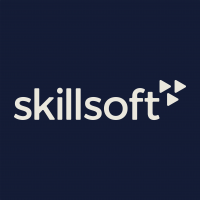Design and develop scalable AI systems, lead the integration of LLMs, collaborate with teams to align AI initiatives, and ensure responsible AI deployment.
Company Description
👋🏼We're Nagarro.
We are a Digital Product Engineering company that is scaling in a big way! We build products, services, and experiences that inspire, excite, and delight. We work at scale — across all devices and digital mediums, and our people exist everywhere in the world (17500+ experts across 39 countries, to be exact). Our work culture is dynamic and non-hierarchical. We're looking for great new colleagues. That's where you come in
Job DescriptionREQUIREMENTS:
- Total experience 10+ years.
- Should have experience to architect and design scalable, autonomous AI systems with a focus on Generative AI, agentic frameworks, and foundation models
- Should be able to lead the evaluation and integration of open-source and proprietary LLMs (e.g., GPT, Claude, LLaMA, Mistral).
- Should be able to define architectures for autonomous agents, multimodal models (text, image, audio), Retrieval-Augmented Generation (RAG) systems, and natural language to SQL pipelines.
- Should be able to collaborate with product, research, and engineering teams to align AI initiatives with business strategy.
- Should have hands-on experience with frameworks such as Hugging Face Transformers, LangChain, OpenAI API, or similar.
- Deep understanding of agent orchestration frameworks (e.g., AutoGen, CrewAI, LangGraph), LLM fine-tuning (e.g., LoRA, PEFT), RAG pipelines, and vector databases (e.g., FAISS, Pinecone).
- Should be able to design solutions leveraging cloud-native architecture (AWS, GCP, Azure), with emphasis on GPU infrastructure.
- Must have experience to develop modular, goal-driven AI systems capable of task planning, memory persistence, context tracking, and multi-agent collaboration.
- Should have experience building autonomous AI agents using frameworks such as AutoGPT, LangGraph, CrewAI, or ReAct.
- Strong understanding of task decomposition, memory management, and tool augmentation in agentic workflows.
- Should have familiarity with long-context memory techniques and multi-agent coordination strategies.
- Must have hands-on experience with agent simulations, LLM-driven planning, and dynamic tool selection.
- Should have knowledge of how to embed feedback, reasoning loops (e.g., Reflexion, Chain-of-Thought), and self-correction mechanisms into GenAI agents.
- Must have experience with human-in-the-loop (HITL) oversight and reinforcement learning for autonomous systems.
- Exhibit excellent communication, leadership, and collaboration skills.
RESPONSIBILITIES:
- Understanding the client’s business use cases and technical requirements and be able to convert them into technical design which elegantly meets the requirements.
- Must be able to establish best practices for fine-tuning, prompt engineering, model compression, and inference optimization.
- Should be able to Implement robust MLOps practices for model versioning, deployment, monitoring, and governance.
- Address ethical AI concerns including bias, hallucination, and data privacy in generative applications.
- Provide technical leadership in building and deploying generative models (LLMs, diffusion models, transformers, etc.).
- Ensure the responsible deployment of autonomous agents through safety layering, feedback loops, and auditability mechanisms.
- Mapping decisions with requirements and be able to translate the same to developers.
- Identifying different solutions and being able to narrow down the best option that meets the clients’ requirements.
- Defining guidelines and benchmarks for NFR considerations during project implementation.
- Writing and reviewing design document explaining overall architecture, framework, and high-level design of the application for the developers.
- Reviewing architecture and design on various aspects like extensibility, scalability, security, design patterns, user experience, NFRs, etc., and ensure that all relevant best practices are followed.
- Developing and designing the overall solution for defined functional and non-functional requirements; and defining technologies, patterns, and frameworks to materialize it.
- Understanding and relating technology integration scenarios and applying these learnings in projects.
- Resolving issues that are raised during code/review, through exhaustive systematic analysis of the root cause, and being able to justify the decision taken.
- Carrying out POCs to make sure that suggested design/technologies meet the requirements.
Bachelor’s or master’s degree in computer science, Information Technology, or a related field.
Top Skills
Agentic Frameworks
Autogpt
AWS
Azure
Faiss
Foundation Models
GCP
Generative Ai
Hugging Face Transformers
Langchain
Openai Api
Pinecone
Nagarro Chennai, Tamil Nadu, IND Office
AWFIS, 111, Rajiv Gandhi Road, Old Mahabalipuram Road, Kottiwakkam Village, OMR India, Chennai, India, 600041
Similar Jobs
Artificial Intelligence • Information Technology • Machine Learning • Software • Virtual Reality • Analytics
Design and architect AI systems, integrate LLMs, lead collaborations, establish MLOps practices, and address ethical AI concerns.
Top Skills:
Agentic FrameworksAutogptAWSAzureFaissGCPGenerative AiHugging Face TransformersLangchainLarge Language ModelsOpenai ApiPinecone
Artificial Intelligence • Edtech • Mobile • Natural Language Processing • Productivity • Software
The Senior Key Accounts Manager at QuillBot will drive customer retention and brand advocacy, managing relationships and analyzing customer needs to support strategic marketing initiatives.
Top Skills:
AIEdtechSaaS
Artificial Intelligence • Consumer Web • Edtech • HR Tech • Information Technology • Software • Conversational AI
The Sr Data Analyst will analyze large datasets, develop dashboards, deliver insights, and support decision-making to improve business processes.
Top Skills:
ExcelPower BIPythonRSQLTableau
What you need to know about the Chennai Tech Scene
To locals, it's no secret that South India is leading the charge in big data infrastructure. While the environmental impact of data centers has long been a concern, emerging hubs like Chennai are favored by companies seeking ready access to renewable energy resources, which provide more sustainable and cost-effective solutions. As a result, Chennai, along with neighboring Bengaluru and Hyderabad, is poised for significant growth, with a projected 65 percent increase in data center capacity over the next decade.


